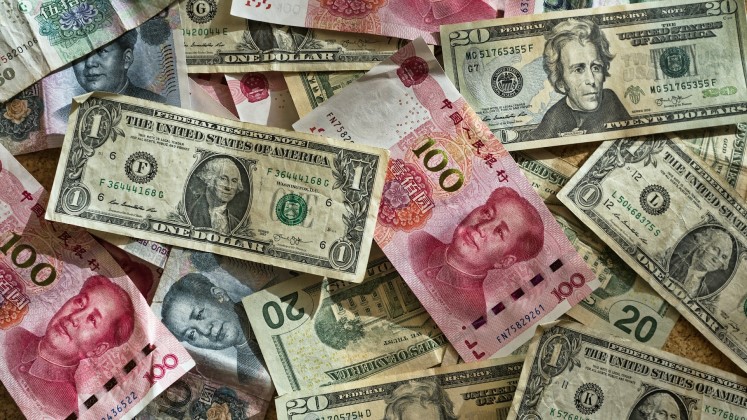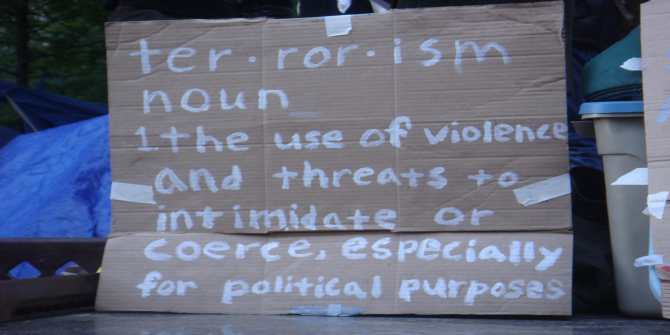 Recent polls outside of the US indicate that President Donald Trump’s leadership is not trusted overseas. In this Q&A, Thomas Gift writes that while Trump’s poor handling of the US response to the COVID-19 pandemic is unlikely to exact irreparable damage to US soft power on its own, it is part of a wider trend of perceived poor leadership that is causing cumulative damage to America’s reputation internationally.
Recent polls outside of the US indicate that President Donald Trump’s leadership is not trusted overseas. In this Q&A, Thomas Gift writes that while Trump’s poor handling of the US response to the COVID-19 pandemic is unlikely to exact irreparable damage to US soft power on its own, it is part of a wider trend of perceived poor leadership that is causing cumulative damage to America’s reputation internationally.
How has Trump’s handling of COVID-19 shaped how he’s viewed outside the US?
Trump’s (mis-)management of the pandemic certainly hasn’t him done him any favors in terms of his international profile. In the UK, for example, an April poll from YouGov showed that 73 percent of Britons don’t trust Trump’s leadership on COVID-19 “at all,” and an additional 14 percent don’t trust him “very much.” Those disapproval numbers would likely look even higher if the poll were taken today, given surging numbers of new coronavirus cases that surpassed 50,000 for the first time last week. At the same time, it’s hard to know how much additional damage COVID-19 has actually done to Trump’s reputation globally, since the president was already held in low esteem abroad even before the outbreak. For instance, only 19 percent of Britons have an overall positive opinion of Trump—and this negative view of the president is nothing new. So perhaps we’d already been pushing up against the floor of Trump’s support internationally.
Will Trump’s “(mis-)management” of COVID-19 have negative implications for how the US exercises power abroad?
Any time perceptions of American leadership are dented, it makes it harder for the United States to project “soft power.” That can have broad ripple effects across any number of areas, especially US foreign policy. Historically, the US has acted as a leader in confronting international crises. However, the more that the US government is seen as incapable of solving difficult problems like COVID-19 within its own borders, the more likely other states will be to question American competence—and the more that geopolitical rivals, like China, will try to fill that power void. It’s important not to be hyperbolic here. The US remains a superpower, and any claim that Trump’s mishandling of COVID-19 will—by itself—inflict irreparable damage to America’s soft power is an overstatement. But Trump’s largely inadequate response to the coronavirus is part of a broader accumulation of missteps that could chisel away at America’s perceived strength internationally.
Is it too late for Trump to flip the script on COVID-19 and depict a more positive image internationally?
That would require Trump to accomplish two feats: first, actually making real progress domestically in stemming the tide of new coronavirus cases; and second, broadcasting those accomplishments to an international audience. Both seem unlikely. Domestically, the Trump administration has—at best—sent mixed messages to many Americans about the importance of following Centers for Disease Control guidelines regarding mask-wearing and social distancing. Trump’s personal refusal to wear a mask has even helped to spur on some problematic number of supporters who neglect to wear masks as a political statement. Internationally, Trump has also never been one to care too much about cultivating a positive reputation. In fact, the president seems to revel in his iconoclasm—a sentiment that’s been prominently on display time and again, for example, in high-profile spats like at the G-7 summit in 2018 and the NATO summit in 2019.
- These remarks are based in part on an interview by Thomas Gift on Time Radio on July 7, 2020.
- Featured image: “President Trump’s Trip to the G7 Summit” by The White House is Public Domain.
Please read our comments policy before commenting.
Note: This article gives the views of the author, and not the position of USAPP – American Politics and Policy, nor the London School of Economics.
Shortened URL for this post: https://bit.ly/3iZuIa3
About the author
 Thomas Gift – University College London
Thomas Gift – University College London
Thomas Gift is a Lecturer of Political Science at UCL, where he teaches on Public Policy Economics and Analysis and is the Director of the Philosophy, Politics, and Economics (PPE) Programme. He is also a Visiting Fellow at the LSE US Centre.






